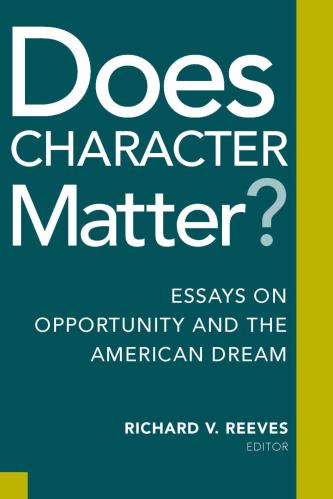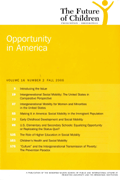J.D. Vance has many attributes, including the one Napoleon most valued in his generals: luck. Hillbilly Elegy, a memoir of his poor, white Appalachian childhood and subsequent upward mobility through military service and Yale Law School, is a testament to Vance’s intelligence, honesty, and resilience. But he is also lucky in his timing, publishing his book at precisely the moment when we most need to deepen our understanding of America’s white poor.
I’m not planning, yet, to add to the growing mountain of commentary on Hillbilly Elegy. Read Mona Charen’s thoughtful conservative reaction, David Brooks’ astute interpretation, Aaron Renn’s take (easily the best so far), or listen to Vance himself on NPR. Suffice to say for now that, to me, the main theme is personal agency, or rather the lack of it—and that blaming welfare won’t do.
Hire a hillbilly
Having scaled the heights of the American higher education system, Vance ended up working as an investment banker. I imagine he is a very good one. But it turns out I don’t have to imagine it. Just after Vance’s rise to prominence, the National Bureau of Economic Research published a working paper by Oleg Chuprinin and Denis Sosyura titled “Family Descent as a Signal of Managerial Quality: Evidence from Mutual Funds.” (If only they’d known, they could have given the paper a different title, such as “Hire a Hillbilly: Why Poor Kids make Better Financiers.”)
Chuprinin and Sosyura analyze the performance of fund managers based on their family background and control for a range of other factors including age, education, risk and fund size. The clear finding is that managers from poorer backgrounds perform better. This could be because of selection:
Our evidence suggests that managers endowed with a low economic status at birth face higher entry barriers into asset management, and only the highest-quality candidates succeed in entering the profession.
Another possible explanation is that the very process of overcoming barriers enhances abilities. Most likely, it’s a combination of selection and upskilling: upwardly mobile people are smarter in the first place, and the steep uphill path they take makes them smarter still.
On the flip side, the analysis also shows that there a number of “Tims Nice But Dim” managing funds: people who are not very smart, but were born to affluent parents and so got a head start. Or as the authors more politely put it, “managers from wealthier backgrounds show a much higher dispersion in their performance than managers” of modest descent.
There are some limitations with the study, as Tyler Cowen has pointed out, notably that the managers are from an older generation because family income is not yet available for younger workers. The paper is also focused specifically on one profession, although Chuprinin and Sosyura speculate reasonably that similar effects might be seen in other occupations, such as law, accountancy or consulting, or management more generally.
Upward mobility makes economic sense
There’s a narrow lesson here: when you are hiring a professional, go for the one with a rough upbringing rather than the one with the smooth manners. The broader implication is that there is a link between social mobility and economic performance. Increasing the number of smart, poor kids making it to the top of the labor market is likely to mean an improvement in quality, and therefore productivity. (It also means, of course, that fewer of the dumber kids from upper middle class backgrounds will snag these jobs. Sorry, Dream Hoarders.)
Greater equality of outcomes has uncertain implications for economic growth and efficiency. But greater equality of opportunity seems to point consistently in a pro-growth direction.
We are squandering a lot of potential human capital if we don’t give poorer kids better opportunities. J.D. Vance is clearly an exceptional individual. How many other talented, low-income kids never make it out of their town, let alone onto the bestseller list?






Commentary
If you read Hillbilly Elegy, you should read this paper, too
September 1, 2016